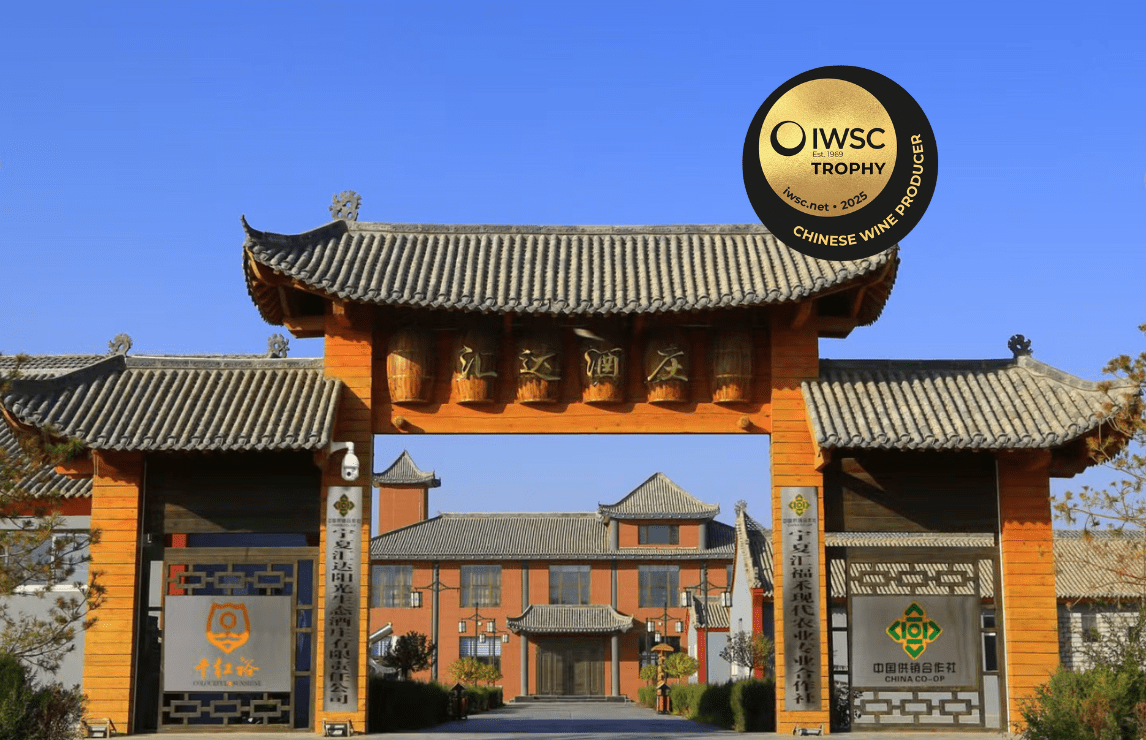IWSC Wine Judging in China results revealed
China’s wine regions delivered an impressive showing at this year’s IWSC Global Judging, with over 150 medal winning wines across a wide spread of varietals and styles. From bold reds to finely crafted whites and late-harvest specialties, the tasting panel confirmed the country’s growing reputation for quality and diversity.
In total, 11 Gold, 56 Silver, and 95 Bronze medals were awarded, with scores reaching as high as 97 points, underscoring the calibre of winemaking on display.
Standout Achievements
The highest-scoring wine of the session was Shandong Taila Vinery’s Petit Manseng Vendange Tartif 2019, awarded 97 points, a thrilling late-harvest style that impressed judges with its concentration, balance, and purity.
Three wines achieved 96 points, including:
Qixinglu Cabernet Sauvignon 2022 (Ningxia)
Niya Legend Marselan Blend M5 2020 (Xinjiang)
Moon Palace Full Moon Red 2023 (Ningxia)
These results confirm both the quality of China’s signature reds and the rising promise of its dessert wines.
Cabernet Sauvignon: China’s Flagship
One takeaway from the judging is that Cabernet Sauvignon continues to dominate Chinese vineyards. The variety earned multiple Golds, highlighted by Qixinglu’s Cabernet Sauvignon 2022(96 points) and Renyiyuan Winery’s Dao Cabernet Sauvignon 2020(95 points).
Judges praised the consistent balance of ripe fruit, structure, and regional identity, noting that Ningxia Cabernets, in particular, showed a strong sense of place and the ability to rival established benchmarks worldwide.
Marselan’s Rising Star
Introduced to China in the early 2000s, Marselan is quickly becoming the country’s signature red. Standout Gold medal winners included:
Chateau Mihope Enjoy Marselan 2023 (95 points, Ningxia)
Silk Road Vineyards Bird’s Nest Marselan 2023 (95 points, Xinjiang)
These wines demonstrated Marselan’s versatility, offering both depth and approachability, and confirmed its growing role in defining modern Chinese red wine identity.
Diversity in Whites and Sweet Wines
White wines also showed strength, particularly in Chardonnay and aromatic varieties. Highlights included:
Chardonnay: Ningxia and Shandong delivered consistent Silvers and Bronzes.
Petit Manseng: Established itself as China’s most exciting white, led by the session’s highest scorer, Taila Vinery’s 97-point late harvest.
Riesling and Viognier: Entries from Xinjiang and Inner Mongolia delivered Bronze and Silver performances, underlining experimentation with aromatic whites.
Regional Highlights
Ningxia: By far the strongest performer with 79 medal-winning wines, including many of the top-scoring Cabernets and Marselans.
Xinjiang: Contributed 33 medal winners, led by Niya’s Marselan blend and Silk Road Vineyards’ Bird’s Nest Marselan.
Shandong: Delivered the session’s top wine, Taila Vinery’s 97-point Petit Manseng, alongside a mix of Cabernet and Chardonnay successes.
Hebei: Secured 16 medals, showcasing the region’s steady emergence.
Other regions: Inner Mongolia, Shanxi, Gansu, Liaoning, Tianjin, Shaanxi and Yunnan all featured on the medal table, confirming China’s viticultural diversity.
A Growing Global Competitor
With an average medal strike rate of over 65%, Chinese wines demonstrated both strength and consistency. The strong results for Cabernet Sauvignon and Marselan reinforce their status as flagship reds, while Petit Manseng’s performance points to a bright future for China’s sweet and aromatic wines.
As judges observed, the combination of regional identity and stylistic ambition positions China as an increasingly serious competitor on the world stage.
Chinese Wine Producer of the Year revealed
We are delighted to announce that NingXia HuiDa Sunshine Ecological Winery Co.Ltd. has been awarded the IWSC Chinese Wine Producer of the Year trophy. Nestled in Hongsibu district of Wuzhong, northwest China's Ningxia Hui autonomous region, three of their wines won gold at this year's competion: - Qianhongyu Cabernet Sauvignon Red Wine 2019 - described by one judge as having "dark brooding fruits on the nose", and "hedonistic with good energy"
- Qianhongyu Cabernet Sauvignon Red Wine 2020 - "a brilliantly put together cabernet" was how one judge described this gold medal winner.
- Qixinglu Cabernet Sauvignon Dry Red Wine 2022 - one of our panel members described this wine as having an "intense blackcurrant profile, and well put together on the palette"






